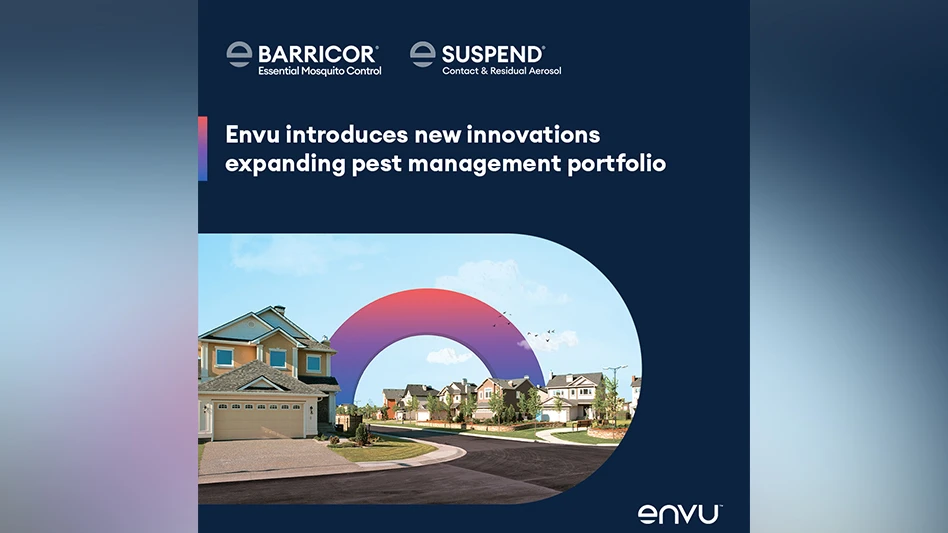
In mid-August 2016, a couple weeks shy of the 11th anniversary of Hurricane Katrina, residents of southeast Louisiana and southern Mississippi experienced another life-altering natural disaster. A lingering weather pattern, one without the typical characteristics of a tropical storm, took thousands by surprise. It was one of the most extensive rain events in recorded history, one forecast to only occur once every five centuries. After the area was deluged by more than 20 inches of rain in less than 72 hours, flooding ensued for days. Baton Rouge and the surrounding area were most severely impacted.
Many residents, living in areas never before flooded, didn’t expect to be in the wake of the impending disaster. Some woke in the middle of the night and unexpectedly stepped into the rising tragedy — ankle-deep water. More than 20,000 people had to be rescued.
PEST ISSUES. As flood waters rose, everyone (and everything) was escaping to higher ground, including pests. Having gone through Katrina, pest control companies knew what to anticipate — in general.
“A lot of insects have been a problem as a result of the flooding, but the biggest issues we’re finding are with spiders and fire ants,” said Jeremy Clark, general manager of Dugas Pest Control, Baton Rouge, La., and president of the Greater Baton Rouge Pest Control Association. “An amazing number of both have appeared in flooded homes.” As expected, fire ants, displaced from their dry homes, balled up and drifted into people’s yards and homes.
“We’re getting more calls at our Baton Rouge office regarding spiders than anything else right now,” said Tony Massey, president of Massey Services, Orlando, Fla. “With 30 years of experience, I would have told you ants would be the No. 1 problem, then termites.”
Asked if his company has seen an increase in mosquito-related calls, Massey responded, “Actually no. I don’t think that’s our customers’ number one concern right now. I think they just accept mosquitoes for what they are. Customers are focused on getting their homes back to normal.”
“Mosquitoes are going to go crazy and I’m not sure why is hasn’t happened yet,” said Laura Simpson, president, Dugas Pest Control, Baton Rouge, La., and recent past president of NPMA. “We haven’t been inundated by customers yet regarding mosquitoes, but I know it’s coming. As the flood waters continue to recede in the next few weeks there will be an increase. I anticipate getting more calls for mosquito and termite treatments for at least the next three months.”
BIG SURPRISE: TERMITES. It’s difficult to experience a natural disaster as overwhelming as the Louisiana flooding and say there’s a silver lining, but perhaps there is from a pest control perspective. And it was unexpected.
The flooding created an unparalleled inspection opportunity. During clean up, residents removed a significant amount of water-damaged drywall, exposing wood framing. They’re opening walls and discovering previously unidentified termite damage or active infestations, as well as evidence of roaches, rodents and spiders that wouldn’t have been found during normal inspections.

“One thing we hadn’t considered is the number of customers who are identifying existing termite problems,” said Simpson. “We knew other insects would be looking for dry land, but we didn’t realize that people were going to have all of these termite issues.”
“It may increase awareness of the need for termite protection based on what people are finding when they open their walls,” said Massey. “There are conditions conducive for termite infestations people didn’t know were there.”
“The effectiveness of liquid termite treatments will certainly diminish as a result of the flooding. We saw the same thing happen after Katrina,” said Simpson. Termite barrier treatments will likely need to be reapplied, she said.
WOOD TREATMENTS. There are a number of pest control companies that have added wood treatment to their arsenal of services as a result of the flooding.
“To help flood victims we’ve added wood treatment services to prevent framing from being affected by wood-destroying organisms,” explained Clark. Dugas Pest Control was one of more than 40 companies that attended Nisus Corporation’s free seminar on wood treatment. (See related story below.)
“We were scrambling to send employees to training, get a marketing plan together, and get enough product so we could provide wood preservation services,” said Simpson. “We wanted to quickly get out there and help our customers. Many of our customers want the service. They need it more than ever.” Simpson says she sees wood preservation as a relatively short-lived burst of business, possibly extending for about a month.
“It’s difficult to say what the long-term impact is going to be for residents. If they’re not properly treating their home for insects and wood-destroying organisms, there’s an increased opportunity for problems,” explained Clark. If residents don’t dry out homes completely, wood framing is going to be susceptible to wood decay, fungus, mold and pests. “Once you seal those walls again, it may be too late to know what problems you’re going to have. Now is the time to be proactive and take the precautions necessary to avoid future problems.”
IMPACT ON PMPs. Many businesses in the flooded areas were forced to shut their doors for several days until the water began to recede.
“As a company, we were very fortunate,” said Simpson. “We shut down for three days, so of course we lost some revenue the first week. The second week the water had gone down enough that you could drive everywhere you wanted to. People were starting to haul out everything that had been destroyed and clean out the muck from their homes. At that point, they were finding all sorts of pests. Our phones — and I’m sure the phones of all of the pest management companies in the area — were ringing off the hook.”
“The streets leading to our Baton Rouge office were flooded,” said Massey. With no phone lines or computer connections, the company’s offices were forced to close for five days.
Regularly scheduled pest control services are being deferred or canceled. “We’ve definitely taken a ding to our revenue as a result of the flooding. We’ve had a significant number of clients who have canceled regular service as a result of the flood damage and being displaced,” said Clark. “Routine pest control will likely pick up again in the next three to six months.”
“I think that in some ways there’ll be a short-term jolt to the economy, with real estate movement, repair work and government money coming into the region,” said Clark. “That could be a boost to the economy and our business in the long run.
“We’ve also found other sources of revenue, particularly treating for wood-destroying organisms,” Clark added. The company is anticipating gaining customers with newly identified pest problems, including termites they previously didn’t know about. “In general, we anticipate an increase in business over time,” he said.
COMMUNITY IMPACT. “The flooding wasn’t a one- or two-day event,” said Simpson. “It was nine days before some people could get back into their homes to see what happened. The impact to the community has been devastating. It’s mind boggling how many people have lost everything they own. As a community, I think we’ve done a great job of pulling together. We instantly had shelters open, before any government agency arrived.”
Area pest control companies have rallied to help their neighbors and pest control companies from throughout the country have reached out to assist their industry kin.
Terminix International donated mosquito control products to the Red Cross and area residents. Nisus Corp. offered PMPs a free seminar on wood preservation treatment. Dugas Pest Control offered in-kind services to residents, including wood preservation and mosquito treatments, as well as offering financial assistance to employees directly impacted by the flooding. Certainly many other companies are reaching out to their customers and neighbors to offer much needed assistance.
Massey Services offered residents free emergency pest services. “You look at situations like this and ask, ‘what can we do that’ll make the greatest impact?’ said Massey. “We began with a donation to the Red Cross. But we wanted to do more for our team members and neighbors. So we said, let’s provide our pest services free of charge so they have one less thing to worry about. After all, it’s the right thing to do for our community.”
“One thing pest control companies and their employees should consider is the emotional factor. So many people have been displaced,” explained Clark. “We’re focused on business. We can’t lose sight of the desperation people are experiencing when they call us. We have to show them compassion.”
“We’ve received calls from pest control companies throughout the country offering financial support and allowing us to use it as we see fit, for affected employees and the community. It’s a testament to how close knit the pest control industry is. I really appreciate that,” concluded Simpson.
The author is a Florida-based freelancer. Email him at daustin@gie.net.

Explore the November 2016 Issue
Check out more from this issue and find your next story to read.
Latest from Pest Control Technology
- How to Get Rid of Odorous House Ants
- Massey Services Promotes Herndon to Director of Sales for Multi-Family Division
- NPMA Announces First Recipients of NPMA PRO Certified Credential
- Pestmaster of the Hudson Valley Acquires Catskill Animal Damage Control
- Photo Slideshow: Ant Identification Tips
- Video: Top 10 PCT Photo Contest Finalists
- UF/IFAS Study Reveals Boats as Perfect Vessels for Global Termite Spread
- Pest Control Consultants (Iowa) Earns Pinnacle Performance Award





